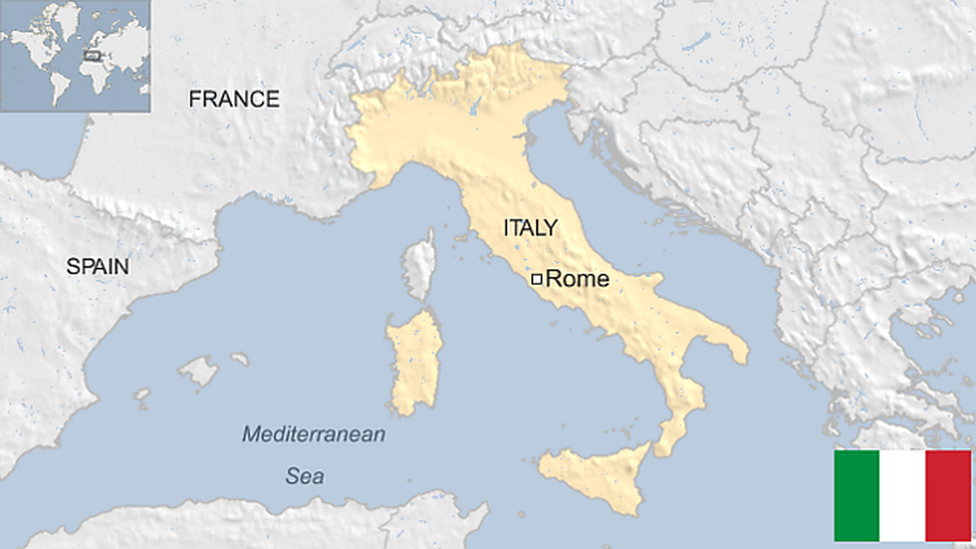Matteo Renzi proposes big tax cuts and electoral reform
- Published
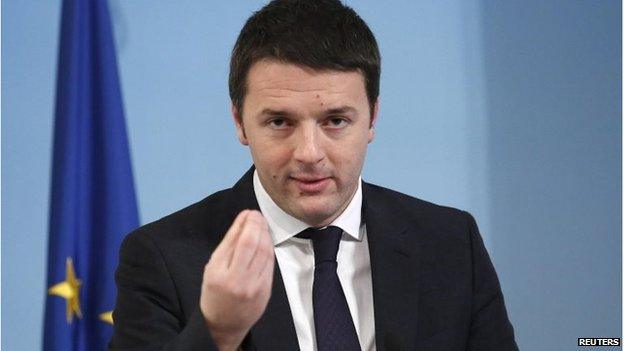
Mr Renzi made "the answers to Italy's problems seem obvious and easy," says BBC correspondent Alan Johnston
Italy's new Prime Minister Matteo Renzi has proposed a sweeping package of tax cuts, in a bid to revive the country's economy.
In his first full news conference, he insisted the package would not breach European Union budget deficit limits.
Mr Renzi said income tax would be reduced by a total of 10bn euros ($14 bn; £8bn) annually for 10m low and middle income workers from 1 May.
The 39-year-old said his agenda was the most ambitious Italy had ever seen.
"This is one of the biggest fiscal reforms we can imagine," the former mayor of Florence told reporters after a cabinet meeting that approved the measures.
Detail to come
Italy is struggling to emerge from its longest post-war recession and Mr Renzi has made clear that job creation and growth, rather than austerity, will be the focus of his government.
He said the detail of the tax cuts would be set out in the government's annual forecasting document released next month, and made clear the budget deficit goal would be raised, while insisting that it would stay below the EU's ceiling of 3% of GDP.
Italy is currently aiming to keep its deficit to 2.5%, after 3% in 2013.
"We will respect our European commitments," he said, adding that he expected EU authorities would take note of Italy's reform efforts in judging its public finances.
He said the tax cuts will be financed by reductions in central government spending, extra borrowing, and by resources freed up thanks to the recent fall in Italy's borrowing costs.
Italy's regional IRAP business tax will also be cut 10%, to be financed by increasing tax on income from financial instruments - excluding government bonds - from 20 to 26%.
His predecessor Enrico Letta paid off around 22bn euros ($30.5bn; £18.5bn) of the state's debts to private suppliers in 2013, and Mr Renzi promised to pay off the remaining 68bn euros ($94.5bn; £57bn) by the end of July, though he did not explain how he would pay for this.
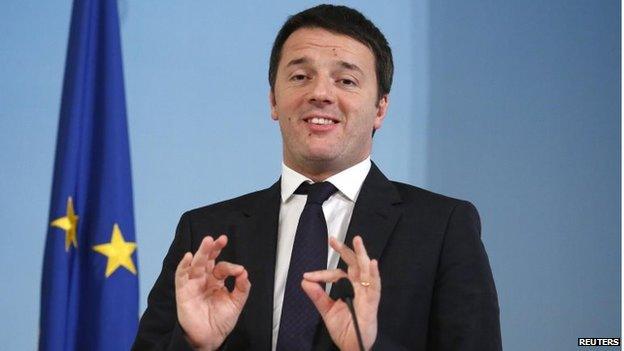
Mr Renzi offered few specific details on how his proposals would be paid for
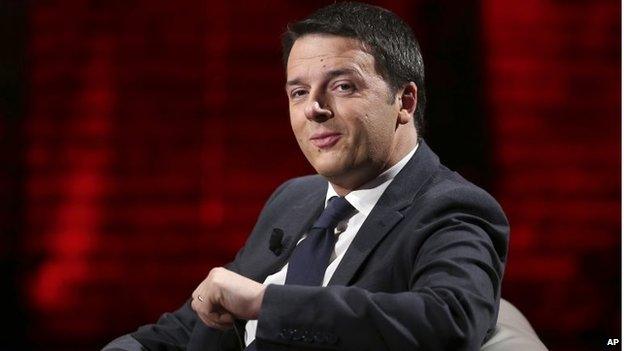
Mr Renzi is the youngest national leader in Europe
The Economy Minister Pier Carlo Padoan later admitted Italy would have to obtain permission from European authorities if its plan to pay off these debts leads it to breach EU borrowing limits.
"I won't disguise the fact that we don't have a very clear idea of how much the debt arrears which can actually be mobilised amounts to," he told a news conference.
Italy's two trillion euro public debt is, at 133%, already the second biggest in the eurozone as a proportion of GDP, after Greece.
Earlier this month, the EU put Italy on a watch list of three countries with severe macro-economic imbalances, along with Slovenia and Croatia, due to its weak productivity and massive debt.
Electoral reforms
Mr Renzi, who heads a broad coalition, was speaking after the lower house of parliament approved a new electoral law designed to ensure more stable and long-lasting governments.
After securing a comfortable victory, Mr Renzi tweeted "Politics one, Defeatism nil."
The law, which favours bigger parties, must now go to the Senate, where it is likely to face additional amendments from Renzi's own centre-left Democratic Party.
- Published25 February 2014
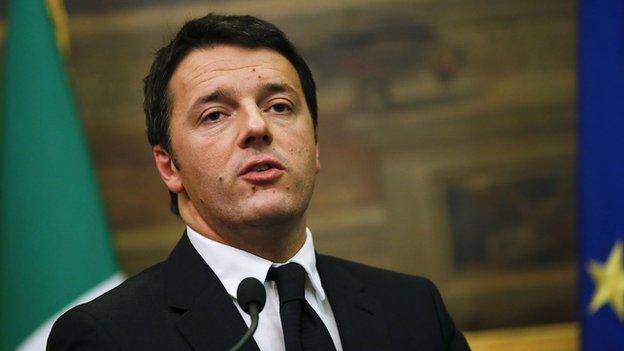
- Published1 June 2015
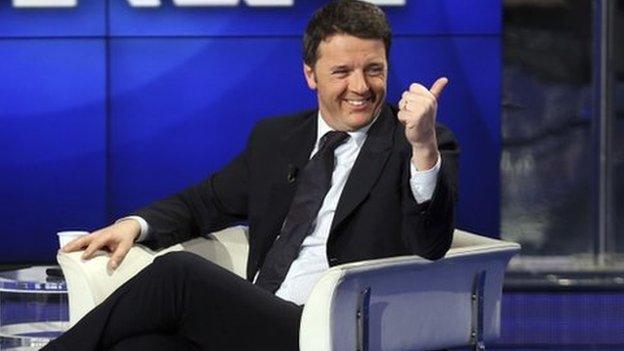
- Published16 February 2014
- Published4 October 2023
